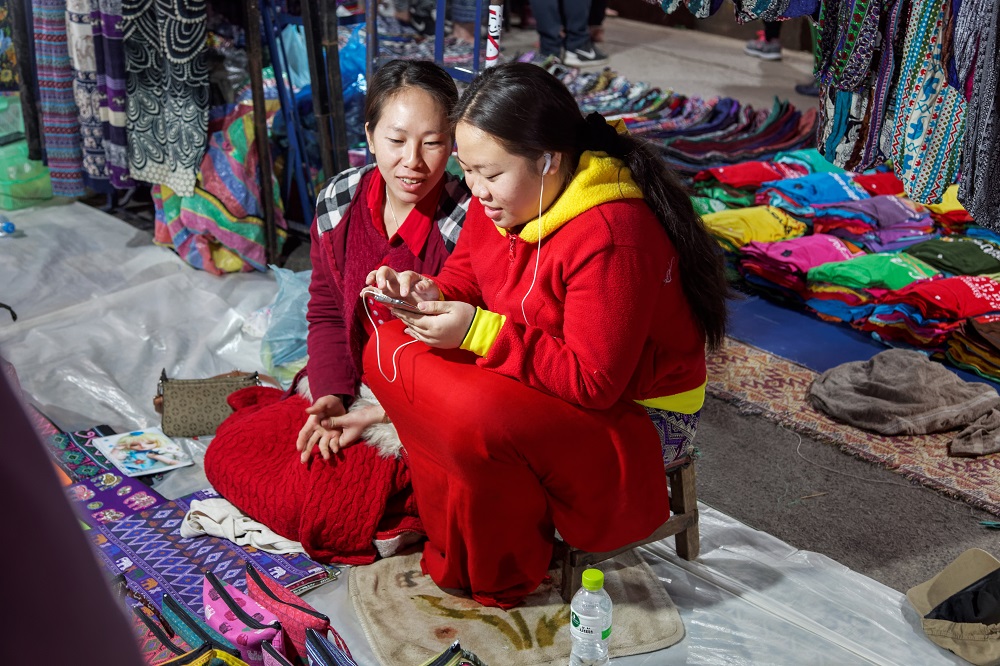Apr 15, 2019 | by The SEEP Network

The SEEP Women’s Economic Empowerment Working Group hosted a Twitter Chat on March 12, 2019 to celebrate International Women’s Day and explore Technology and Innovation in Women’s Economic Empowerment.
While the global advancement of women over the last few years cannot go unnoticed, much work remains to reach gender equality. Innovative approaches are needed to ensure that women – from entrepreneurs to informal workers to C-suite executives – are empowered to actively engage in their economies. Technology is a unique avenue to advance the economic empowerment of women and girls. However, technology can also inhibit women’s empowerment by enabling harassment and other unintended consequences.
Over 65 Twitter users contributed to the engaging discussion with hashtag #WEECHAT2019. Interested in hearing the latest from SEEP on Women’s Economic Empowerment? Follow us @TheSEEPNetwork and join our mailing list.
We have compiled a list of 10 lessons derived from resources shared throughout the chat that you will find helpful in your work to advance women’s role in the global economy.
A3. @DAIGlobal #AWEF are partnering with leading #fintech & financial firms to encourage women’s digital financial inclusion in Egypt thru innovative services https://t.co/gDbNME3v8s #WEECHAT2019 https://t.co/dIINodnxLa
— The SEEP Network (@TheSEEPNetwork) March 12, 2019
Learn more about the changing landscape of women’s financial inclusion in Egypt.
A2: Hot off the press! @GSMA’s Mobile Gender Gap Report , found variation across regions and countries, overall challenge to mobile phone ownership? Affordability. Number 1challenge to internet use: literacy & skills. https://t.co/kSOZYjuBbw #WEECHAT2019
— Estinza (@estinza) March 12, 2019
Discover the most recent findings on where the Mobile Gender Gap in access, affordability, literacy and internet use stands today.
A1: “Access is political & social. It’s financial & institutional. There is no such thing as homogeneous access.” Real girls, real lives, connected shows girls’ access & usage of mobile across 25 countries @dlab_mit @Girleffect @VodafoneFdn #WEECHAT2019 https://t.co/hJUqPEmtek
— mSTAR Project (@mSTAR_Project) March 12, 2019
Real stories from India, Bangladesh and Rwanda help explain the various ways in which girls access mobile phones with lessons and recommendations.
A1: Good qual data is key. @GSMA’s Toolkit for Researching Women’s Internet Access and Use offers focus group questions + @USAID_Digital & @FHI360’s Gender and ICT Toolkit shares tips as well. #WEECHAT2019 https://t.co/C3vGvDGNkd
— Hannah Skelly (@Hjskelly) March 12, 2019
Read a thorough assessment of gender and Information Communication Technology (ICT).
The #digitaleconomy can also have major dividends for women #entrepreneurs through the possibilities of #ecommerce https://t.co/UiDQwI1hvO #WEECHAT2019 #BalanceforBetter
— Shamarukh Mohiuddin (@ShamarukhM) March 12, 2019
To better understand gender mainstreaming in the digital economy, read these recommendations for ASEAN countries.
A1b: ICRW’s research found that women who are experiencing TFGBV reduced their online presence. Addressing and preventing TFGBV is part of making sure that women have access to this new realm of opportunities. #WEECHAT2019 @TheSEEPNetwork #IWD2019 https://t.co/5EsMZdGzAe
— ICRW (@ICRW) March 12, 2019
Explore how standard measures and improved data are crucial to preventing it and providing support.
In the APEC #WomeninSTEM framework https://t.co/U5oMZovIFg we identified #stereotypes and other cultural constraints as discouraging factors that reinforce the idea that women’s primary place is in the home. #WEECHAT2019 #A1
— Nathan Associates (@Nathan_Inc) March 12, 2019
Find out how women’s ownership of tech firms leads to bigger revenues and increased job opportunities.
@Data2X teamed up with Oxford Uni and QCRI to examine how Facebook data + offline & online info can measure and ‘nowcast’ digital gender gaps in 150+ countries, promising results! https://t.co/JkT6GyVA7v @QatarComputing @ingmarweber @MFatehkia @ridhikash07 #WEECHAT2019 https://t.co/slgv2QWOju
— FHI 360 (@fhi360) March 12, 2019
Explore what Facebook data can tell you about the digital gender gap.
Q4: Laboratoria, a tech bootcamp program in Latin America, trains women in tech and places them in jobs around the world. Tech programs that intentionally recruit women and smaller communities can help! https://t.co/MPuRovyMYN #WEECHAT2019 @TheSEEPNetwork #WomensDay https://t.co/zzihKyoNc2
— Marketlinks (@marketlinksorg) March 12, 2019
Read the example of a tech bootcamp in Latin America that trains women in tech and places them in jobs across the globe.
A4. From @CGDev: "If you own a bank account, chances are you are better off than a 1/3 of women worldwide. If that bank account comes with a nice app on your phone, you’re probably economically better off than 60% of women worldwide." #WEECHAT2019 https://t.co/U4oFoKWaFQ https://t.co/gDg2KgD6VR
— EnCompass LLC (@EnCompass_World) March 12, 2019
Learn about keeping women at the center of product development to support their digital inclusion.
Categories: Financial Inclusion Technology Women and Girls English Blog Womens Economic Empowerment Blog WebinarsBlogs

1621 North Kent Street, Ste 900,
Arlington, VA, 22209
P 202.534.1400
F 703.276.1433
Website Photos: © mari matsuri
